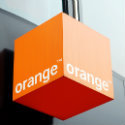Also in today's EMEA regional roundup: Nokia ships application containers; Arcep vindicated in French 5G spectrum rumpus; Vodafone comes up short on advertising standards.

Also in today's EMEA regional roundup: Nokia ships application containers; Arcep vindicated in French 5G spectrum rumpus; Vodafone comes up short on advertising standards.
The old ones are the best. So say Orange and Nokia, who have signed an agreement to increase the use of refurbished equipment in telecom infrastructure. Under the terms of the agreement, refurbished gear will be offered by Nokia to all Orange subsidiaries via Buyin, the procurement partnership formed by Orange and Deutsche Telekom. The hope is that the new approach will reduce carbon emissions by removing the need to manufacture as much new equipment. Initially, the focus will be on radio access network (RAN) gear, though other equipment will become part of the process in time.
Meanwhile, on the mind-bending software front, Nokia is introducing something called "application containers," which it says will enable communications service providers to more easily install applications on customer premises equipment. According to Nokia, containers are a way of providing an "environment within a device" that can host independent isolated applications without interfering with the functioning of the device or other applications. This allows providers to add new services, including services from third parties, creating innovative ways to make more money.
France's highest administrative court, the Conseil d'Etat, has rejected all of the appeals filed against the decisions made by communications regulator Arcep regarding the assignment of 3.5GHz frequencies (the "core" 5G) band in metropolitan districts. In November 2020 and May 2021, two environmental protection associations and several members of the public requested that the Conseil d'Etat annul every decision adopted by Arcep as part of the procedure for assigning the spectrum. The protests against Arcep's decision-making related to the principles of precautionary action, the protection of human health and public participation.
Vodafone has had its knuckles rapped by the UK's Advertising Standards Authority over an online ad for VOXI, its youth-oriented mobile offering. The ad promoted a 12GB data plan for £10 (US$13.64) per month. Alongside the "12GB" heading, "8GB" was crossed through, implying that was the established price for the plan. Rival MVNO Giffgaff challenged the ad, claiming that 8GB for £10 per month had not been sufficiently established as the usual selling price, and therefore the ad was misleading. The ASA agreed, and ruled that the ad must not appear again in the offending form. It also told Vodafone that henceforth introductory offers must be clearly marked as such.
Less controversially, Vodafone UK has launched a new broadband service aimed at those in the SoHo (small office/home office) sector concerned that they will be left high and dry should their fixed-line broadband go down. Business Broadband Pro, as the offering is called, features automatic 4G back-up and offers download speeds of 35 Mbit/s and 63 Mbit/s, depending on the tier chosen. It also comes with the perhaps overly gung-ho promise that customers will receive "proactive round-the-clock monitoring by a dedicated team of UK-based engineers who will resolve any technical issues, should they arise." Packages start at £29 ($39.56) a month, excluding VAT.
UK altnet Hyperoptic is also trying to tap into small-business broadband paranoia with the launch of something called Dedicated Business Care, a feature which Hyperoptic says will give its business broadband customers access to a dedicated customer service support function and more personalized service.
— Paul Rainford, Assistant Editor, Europe, Light Reading
Read more about:
EuropeAbout the Author(s)
You May Also Like











